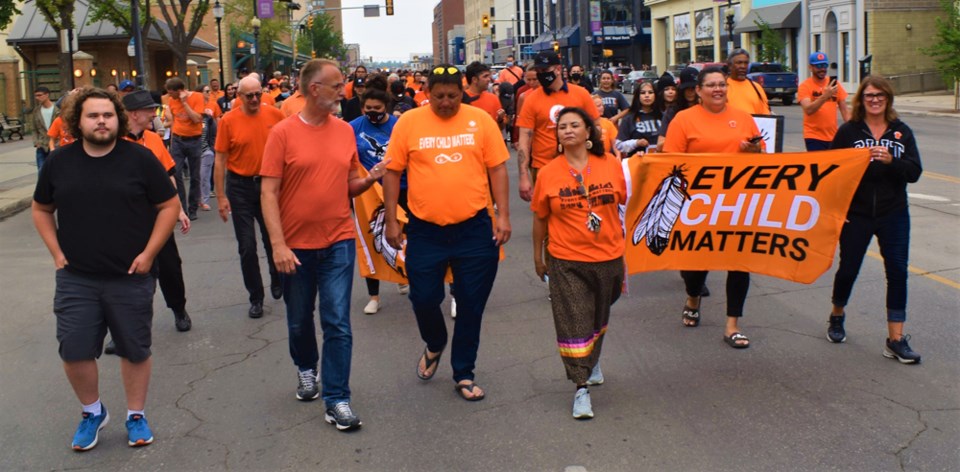SASKATOON — Catholic leaders in Canada hails the creation of an Indigenous-led transitional committee saying it is an important step towards finally addressing the 94 Calls to Action from the Truth and Reconciliation Commission’s final report released in 2015.
Former TRC Commissioner Wilton Littlechild from the Ermineskin Cree Nation, Provincial Council of the Métis Nation of Ontario Region 4 Councillor Mitch Case, Val-D’Or Native Friendship Centre/Anishnabe Executive Director Edith Cloutier from the Timiskaming First Nation, Pauktuutit Inuit Women of Canada interim Executive Director Rosemary Cooper from Nunavut and Indspire/Ojibway President and Chief Executive Officer Dr. Mike DeGagné from the Animakee Wa Zhing 37 First Nation are the committee members.
A new board of directors will be named for the new National Council for Reconciliation, according to the Catholic Register.
“The [NRC] will be an important tool for Indigenous peoples to hold the government accountable to achieving meaningful change for our peoples,” Littlechild, who is also a board director of the Indigenous Reconciliation Fund, said in a release.
The NRC is based on TRC’s Call to Action 53 that states Parliament, “in consultation and collaboration with Aboriginal peoples, to enact legislation to establish a National Council for Reconciliation” with the established council being an “independent, national, oversight body with membership jointly appointed by the Government of Canada and national Aboriginal organizations and consisting of Aboriginal and non-aboriginal members.”
Canadian Conference of Catholic Bishops spokesperson Jonathan Lesarge was quoted by the Catholic Register as saying the CCCB leadership is hoping to “work with the council in the years ahead to support a more hopeful future for Indigenous peoples.”
“We [CCCB] continue to work collaboratively with all dioceses across the country in fulfilling the bishops’ shared commitment to healing and reconciliation, including through initiatives that are national in scale, such as the collective apology that was issued in September,” added Lesarge.
The council is created for government-Indigenous relations to hold the federal government liable for its commitment to reconciliation and moving forward after then Prime Minister Stephen Harper issued an apology on behalf of the Government of Canada.
Deacon Rennie Nahanee of Squamish, B.C. said he is hoping the reconciliation between the Catholic church and Indigenous communities could also restore Indigenous languages, culture and spirituality.
Nahanee has organized Masses in his native Squamish language while also combining Indigenous symbols and imagery into the liturgy. Having liturgies — masses, funerals, weddings, baptisms and others — done in Indigenous languages is a way for the Catholic church to honour Indigenous cultures and is considered a step toward reconciliation and healing.
“A reconciliation government committee, made up by and run by federal and native politicians, will not work. The church followed orders from the feds and as such is responsible for our trauma, for the way they carried out the government mandates to take the Indian out of the child,” said Nahanee.




